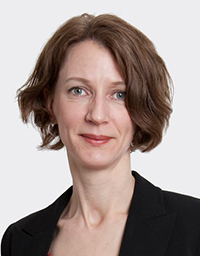A course in meta-analysis was hosted by ICRAF in Nairobi, Kenya, November 28 - December 2. The main organiser was the AgriFoSe2030 programme.
There were 31 participants from 15 African countries and one Southeast Asian country at the course. The participants were post-doc students or senior researchers in a wide range of fields, including crop production, soil science, plant breeding, agroforestry, aquaculture and livestock production.

The participants in the course during a lunch break. Photo: Sofia Boqvist.
Meta-analysis - a powerful tool
Meta-analysis is a powerful statistical methodology for synthesizing research evidence across independent studies. The method allows quantitative analyses of the magnitude of effects and has a high degree of objectivity because it is based on a standardized set of statistical procedures.
The main teacher was Professor Julia Koricheva at the Royal Holloway University of London. She is Professor in ecology and has written a large number of scientific review papers using meta-analysis. In addition, she is lead editor of the recent book “Handbook of Meta-analysis in Ecology and Evolution", Princeton University Press.
Policy and communication
A component about policy and policy communication was also included in the course. This part was arranged by Stockholm Environment Institute (SEI), Nairobi.

Spara
During a lecture on meta-anaysis in Nairobi. Photo: Sofia Boqvist.
Spara
Spara



 Sofia Boqvist, Associate Professor
Sofia Boqvist, Associate Professor